Living in The Wilderness: What to Expect, How to Face It
Going off the grid for a change? Worried that you might get stranded in the wild? Unsure of the uncertain? These are some of the questions that we’ll need to answer before we head out into the wilderness. We don’t want to take a leap of faith into the wilderness and then find ourselves surrounded by several unknown factors.
[the_ad_group id=”21″]
Whether it is packing us tools and equipment, acquiring the right set of survival skills, learning to find water or perhaps navigating around the wilderness; we certainly need to know it all if we’re going to be living in the wilderness for a while.
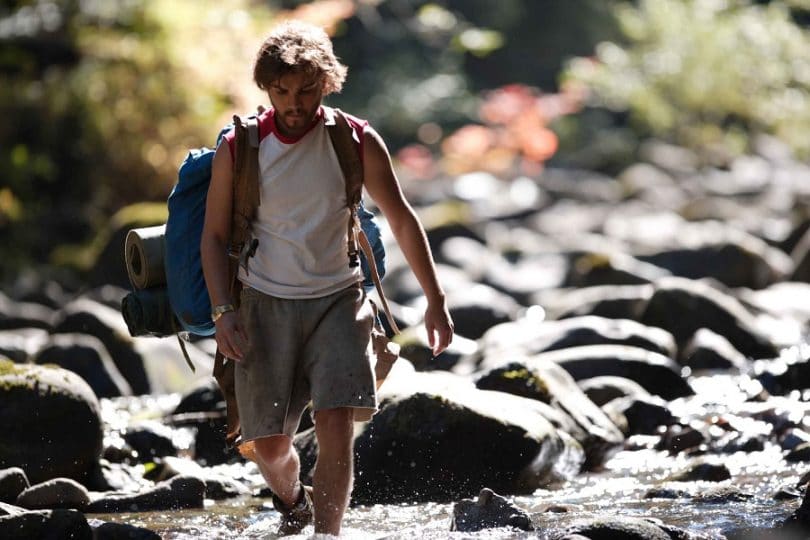
So, to get started, the following blog article will cover the most important tips, tricks and points that you could adhere to while on a survival run. These survival points are detailed below to ensure complete safety for anyone hoping to embrace the wilderness.
What Survival Skills, Techniques And Tips Do We Need For Living In The Woods?
Out of the many survival skills that one needs to know, the following set of skills are perhaps the most crucial of them all.

The skills enlisted below ensure that an adventurer, survivalist or a hiker gains easy access to the basic requirements to support life in the wilderness.
- Communication: People often make this mistake of going off for a wilderness trip without informing anyone. I understand that going to the wilderness is about having some alone time, being one among the nature and everything. That does not imply that you will risk your life for the cause.
Always remember to communicate your trip to at least one of your closest friends, a family member or anyone who can begin to search for you if you’ve been gone for too long a time. What if you leave for your adventure trip without telling anyone and you find yourself facing a life threatening situation? Think about it.
Telling your friends and family, the route and location you’re gone off too will at least ensure some sort of safety in a way that there is someone out there looking for you. Moreover, the only way to get rescued in a situation where you’re left with nothing but a hope to survive is to wait for someone to come and get you. How will they come if you haven’t told anyone? You could even communicate instantly by signalling with the help of whistles or torches too. - Positivity: You’ve got to be extremely calm. Hold your head up high and constantly think positive. I know that thinking positively does not shake off the fear of uncertainty waiting out there for you in the wilderness but it certainly goes a long way though. Especially when you’re in a survival situation and you’ve literally run out of all options, belief, positivity and optimism is all that you’ve got. That’s when you’ll realize that with even the smallest amount of courage and undeterred faith, you can make it out alive safely without any harm.
To begin with, always set a very realistic goal for your wilderness trip. Plan out every detail of your adventure. Once having accomplished that, prepare. Prepare to get yourself ready mentally as well as physically. If something isn’t working the way you planned it would, do not panic but instead smile and try to figure out a solution peacefully. Look around you. You’ll find the inspiration and the drive that you need from the beauty of the nature around you. - Inventory Control: Got your knife? Checked your matches? Yes, you’ll need to ask these questions because the moment your plan for survival begins to fade away, your tools and equipment along with your other items in the inventory will become your most important hope for survival. Check to see if you’ve got everything with you. Make a list of important items to carry prior to leaving for the trip.
The list should and must include every item whether it is cord, flashlight, bowl, knife or even medicine; you should always have a good set of inventory. There is a saying that roughly translates to “Even hay is a drowning person’s hope for survival. Much like the saying, even the tiniest of items can prove critical during asking times. Some survivalists share stories of how crucial their shoe laces were when they were stranded in the wilderness. So, always have good check of your inventory. - Shelter: When it comes to shelter building, expert survivalists suggest you to get thinking creatively. Familiarize or teach yourself the methods and techniques necessary to build a shelter in the wilderness. Lean on, rock cave, wood hut, tent or hammocks are some of the few shelter choices you have while living in the woods. Each of these shelters comes with their own pros and cons to deal with.
Now, you have to ensure that your shelter has an overhead covering or ceiling of sorts to provide utmost safety during the nights from the elements of nature whether it is wild animals or harsh weather conditions; you need to be prepared for it all. If your adventure location is in a rocky mountainous theme, see if you can get yourself an overhang for shelter. You can find thick layers of pine needles covering the lands. It can be used as a comfortable bedding option. You can even use some sort of branch to take insulation as well. - Water: Think about carrying water with you? What happens after you finish it? The only thing that you can do in such a scenario is to start looking for a source of fresh water. Without sufficient enough water content in the body, you will find it extremely difficult to continue your journey. Staying hydrated is one of the most critical necessities for the body.
Once you find yourself a good source of water, you then need to carefully boil it and purify it before consuming it to quench your thirst. There are many water purification techniques that you can learn to purify salt water, impure water or even mud water per se. Water is even more critical for the body than food and shelter too. - Food: When we’re suffering from the lack of food, it may seem a little too overwhelming to move further. We tend to feel weaker, nauseated, and certainly less energetic as well. Lack of food and missing proper nutrition very much begins to play with your mind. Learning the various types of berries and having the accurate knowledge about various wild plants might just be able to keep you going.
There are millions of berries, plants and insects out there in the wilderness but only a handful of them are edible or rather consumable. It is best to read them up and learn about these edible items before actually trying any out for the first time. Since there are a lot of such berries which are highly poisonous in nature. So you ought to be careful about those berries and plants too. You can’t be too choosy when you’re picking food in the wild. Just go for anything that is eatable. It may not be the most delicious tasting thing in the world but it will very much get you through your time. - Fire: An underrated element of a wilderness adventure. The applications of fire are limitless when we speak of living in the woods. You just must not ignore the usefulness of fire under any circumstance. Warmth, protection, comfort and cooking are some of the many advantages of fire. You follow one of the many fire starting techniques to make fire in the wilderness. Some of the most common fire starting techniques are as follows:
- Lens method
- Bow drill
- Fire Plow
- Stick and wood
Learn at least 3 of the above-mentioned techniques in order to ensure that you will be able to get the heat in time when you need it most. Fire starting is a skill that needs to be mastered beforehand. Make sure that the items being used for starting fire are dry and that you’ve practiced the methods thoroughly before.
- Tools and Equipment: Pocket knife, matches, cords, tents, bottle, sheets and many other items must be carried by you to ensure that you don’t find yourself helpless during survival times. You can find a list of survival items or perhaps buy a survival kit at your nearest adventure store too. The tools that you carry during your survival can be used while you cook food, to find water, protection from animals and countless times when you need them. This is a very important point and every survivalist needs to carry the appropriate tools along with them.
- Navigation: Either learn to read the stars or the position of the sun or perhaps use a compass to get around the woods. It is very easy to get lost in the wilderness and expert survivalists suggest following a well defined route to stay on track in case you start to get lost.
More About Food In The Wilderness
We’ve discussed a lot on the general aspects of living in the woods or surviving in the wilderness. There is one topic that needs a little more attention than the rest; Food. With the skill set described above one can definitely find their way around and find sufficient water to make it through the days as well.
[the_ad_group id=”22″]
However, food is a very delicate topic to deal with when it comes to survival situation in the wilderness. The reason it is so important is that 90% of the berries, plants, insects, eggs or leaves that we find in the wilderness can kill you in seconds. They are totally poisonous. As the rule goes “stay away from anything too colorful”.
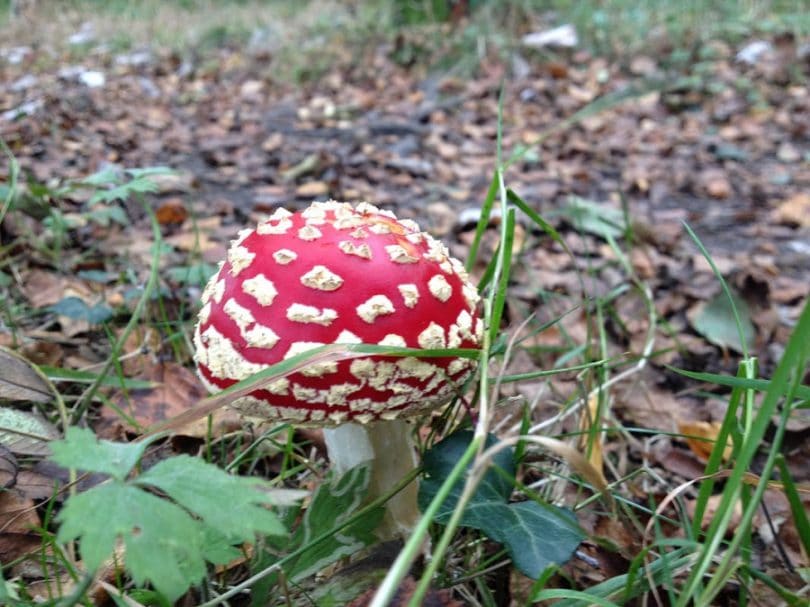
Natural food: You will find yourself surrounded by plants, insects, birds and eggs. Exploiting these things to feed your hunger is actually the best way to avoid being hungry. But one needs to know which of the above-mentioned items are consumable and which ones aren’t.
- Edible plants: There are a lot of edible plants in the wilderness that you can eat. Unless of course you’re adventure is in the middle of a desert in which case you have no hopes of food whatsoever. The best way to test if a plant is eatable or not is to look at it carefully for a while and see if it reacts upon being uprooted. Once you think it is alright, go ahead and try a small piece of the plant and see if your body reacts to it within half a day. Surviving on plants is a very common route taken by most expert survivalists out there.
- Insects: We all know that most insects are rich in proteins. Wilderness though is a whole different story. Edible bugs are often good for health. You need to not think about any culture bias and try eating insects as they are very rich in fat and protein; the two most important components during a survival.
- Fishing: Is your adventure theme a tad bit watery? Well, if it is then you probably won’t die of hunger since water bodies offer good source for fishing. There are plenty of edible fishes out in the ocean. All you need to do is make a three/four headed spear and get fishing. You can try learning angling or using a fishing net in advance well before your adventure date.
- Trapping: This trick however isn’t recommended for all unless you’ve done it before and you wish to do it again. Laying traps to hunt down animals, reptiles or predators is a wonderful way to treat yourself in the wilderness. There is a certain degree of risk that this method covers but it certainly labels your time in the wilderness “adventurous” to a great extent. You will spend a lot of energy to hunt down but learning the various hunting techniques and other associated methods can prove to be beneficial when you’re in need of food in the woods.
- Eggs: When I say eggs, I only mean bird eggs and nothing else. We all know that eggs are rich in proteins and nutrition. You can bake, boil or even fry it if you’ve carried a pan with you. Find yourself a bird’s nest and you will be set for the day. Often times birds lay eggs in the ground too, so don’t forget to check holes in the ground as well.
- Methods to cook: Cooking in the wilderness isn’t about seasoning it after you hunt but rather killing all of the germs and bacteria that may come from eating raw stuff in the woods. You can both light a fire and burn it till it is eatable and ensure that all the parasites are killed or you can carry a portable stove along with you to cook it more carefully as well. You have to carry at least a few utensils with you especially if you are looking to catch food yourself in your wilderness trip.
**Useful Tip:
Hot Stone Cooking: This method of cooking requires the adventurer or the survivalist to start a fire on top of a few non-porous stones. The non-porous stones unlike the porous ones won’t explode on over seating. It is an incredibly useful method of cooking when you wish to cook fishes or meat slices per se.
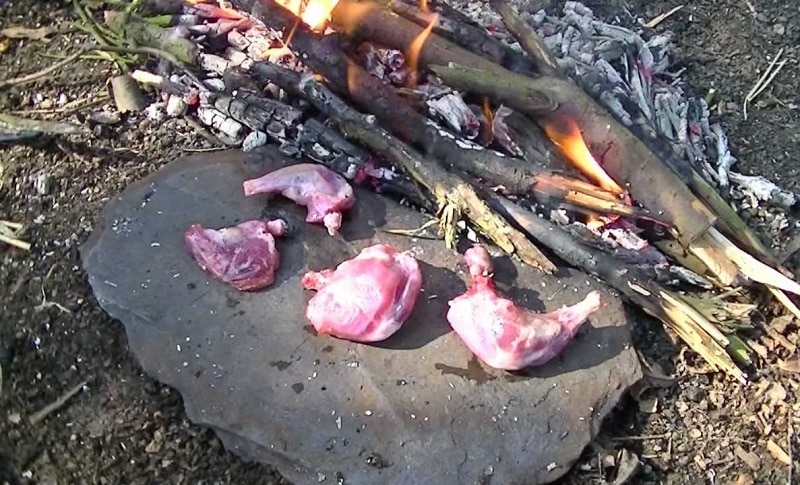
You can even fry things on top of the bed of the stones too. It will generate a lot of flames and for a very long time sufficient enough for you to cook without any trouble. It is a very common cooking technique followed by experts when they are trying to survive in the wilderness.
Living in the wild pretty much can be a challenging step but not an impossible one though. With the right attitude, constant determination and undeterred will to survive; the wilderness can offer you a life changing experience for sure.
[the_ad_group id=”23″]
Every year thousands of people go out camping, trekking, hiking and even on adventures along with survivalists to experience the extreme adrenaline rushing experience for a while. Living in the wilderness is as much fun as much as it is to make it out of the wild safely.
Conclusion
Our everyday lives are extremely easy and simple. No matter what the task is, we get it done by merely pressing a switch or a button. If we need fire, we use the lighter. Basically what I’m trying to convey is that wilderness, unlike your household, is very different. If you aren’t prepared enough, things may seem to fall apart too soon.
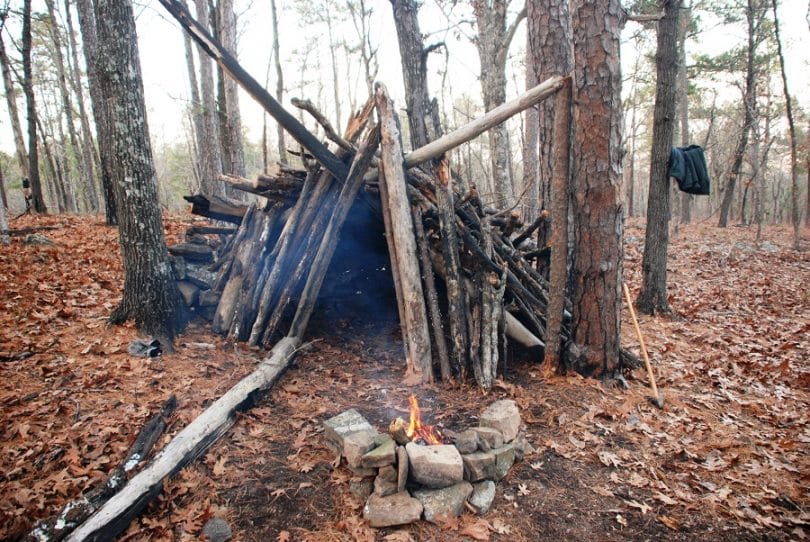
While you are out there in the woods all by yourself, you will learn to realize your most dreadful and terrifying of fears. You can’t afford to make any mistake since every mistake in the wilderness will cost you. The experience of living in the wilderness is surreal and it is very much a once in a lifetime opportunity.





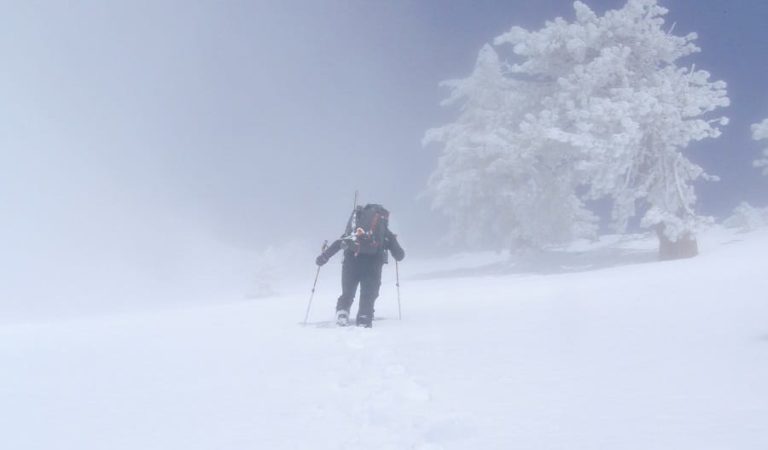
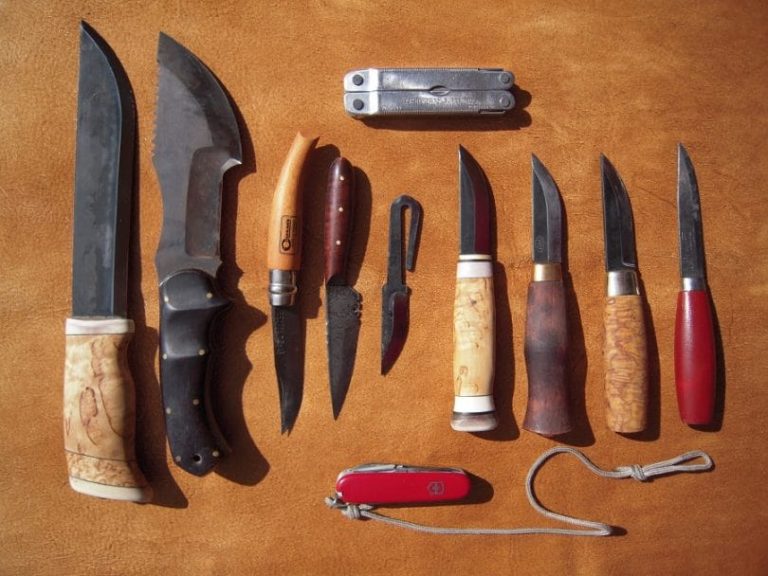
It is a fact that without water, man can not live for more than a few days. However, the lack of food over a long period seriously depletes manpower and sometimes completely paralyze his ability to move after several days without food. Actually, you can eat almost everything that moves and grows, just need to know how to cook it correctly. Thanks to websites like these, you don’t even need to go to the library, like I did in my time.
I would have to agree, Mickey. If only more backpackers and campers know their surroundings and trust their survival instincts, I really think less people will be in danger from hunger, dehydration, and even death. It is our goal to let more people be aware of the wilderness, and master it to their advantage.
I’ve always wanted to live off the grid in the wilderness. My lifelong dream is to live in nature and in harmony with it. I think the worst and the most difficult part is the planning and preparing. I’ll need a considerable amount of money and I’m currently working on it. Everything is much easier when you have more money than you need. The moment when everything becomes reality will be just pure bliss, no matter how difficult that reality is.
Detaching ourselves from the crazy city living and being together with nature and isolation is one of the most amazing experiences we can have nowadays. A lot of people will pay lots of money just to experience this kind of lifestyle. If you’re aiming to do this long-term, it does take considerable amount of money, but I assure you, it is worth it.